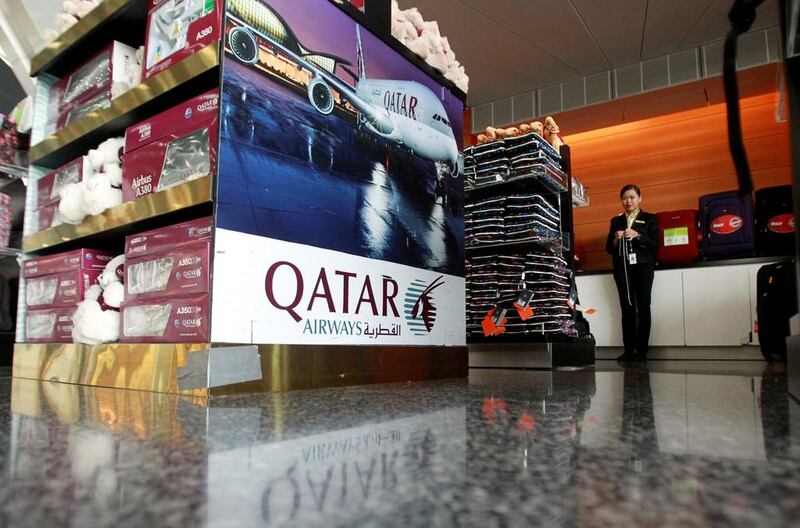Qatar's banks have had their outlook downgraded to negative from stable by Moody's Investor Service amid weakening operating conditions and continued funding pressures facing lenders in the wake of a political crisis between the sheikhdom and neighbouring countries that include Saudi Arabia and the United Arab Emirates.
The rating agency said concerns about the ability of Qatar to diversify its economy and the impact that will have on the profitability of banks as loan growth stalls and the level of non-performing loans rise underpinned its decision.
"We expect that a prolonged period of uncertainty caused by the ongoing dispute between Qatar and some of its Gulf Co-operation Council (GCC) peers could hamper the government's economic diversification plans and impact growth," analysts at Moody's said.
The UAE, Saudi Arabia, Bahrain and Egypt on June 5 broke diplomatic ties with Qatar and cut off air, sea and land access to the country over Doha’s support for “terrorist groups aiming to destabilise the region”. The dispute is the most serious between GCC members since the organisation’s creation in 1981.
Moody's expects Qatar's economy to slow to 2.4 per cent from an average high of 13.3 per cent recorded between 2006 and 2014. Despite that slowdown however, Qatar is still growing at a faster rate than many of its GCC peers, mainly because of the government's massive spending spree on infrastructure ahead of the country's hosting of the FIFA World Cup in 2022.
"These projects are the main drivers of public and private sector economic growth," the analysts noted in their report.
Even so, the ability of banks to lend will likely be curtailed by the decline in economic growth. Credit growth is expected to decelerate to between 5 per cent to 7 per cent in 2017 and 2018 compared to a high of 15 per cent in 2015.
That decline will take place even as the government tries to build buffers. Qatar's government proceeded with capital injections totalling QAR11.2 billion (Dhs11.3 billion) to increase banks’ capital buffers and allow them to participate in upcoming infrastructure projects; in addition to purchasing of a portion of banks’ real-estate loans and domestic equity investments (at their original cost) for QAR20.9 billion, according to the agency.
Though the government's capacity to extend support to the banking sector remains strong, "it is deteriorating" Moody's said as a result of fiscal pressures. Still, the rating agency said that the government has the ability to support the banks as public sector assets are estimated to be at around $304 billion.
_________________
Read more:
Biggest Qatar bank mulls financing options
Qatar crisis: What you need to know
Qatar banks see foreign deposits fall most in two years amid diplomatic row
_________________
Moody's rates 10 banks in Qatar, six conventional and four Islamic, which all told account for 96 per cent of bank assets in the country. Those banks are Qatar National Bank, Qatar Islamic Bank, the Commercial Bank, Masraf Al Rayan, Doha Bank, Al Khalij Commercial Bank, Barwa Bank, Qatar International Islamic Bank, Ahli Bank, International Bank of Qatar.
To date the fallout form the political crisis appears to have had a limited impact on bank profitability. Qatar National Bank, the biggest bank by assets, said in July that its second quarter profit rose 2 per cent to 3.45 billion riyals, beating analyst expectations.
There have been fears that the Gulf states opposing Qatar may withdraw deposits from Qatari banks, pushing the cost of borrowing higher but so far those concerns have not materialized and Qatari authorities have been adamant they have the financial clout to sustain capital flight stress such a scenario may produce. Qatar finance minister Ali Shareef Al Emadi has said repeatedly that his country's banking system was stable and had ample reserves of cash.
Despite government assurances about being able to meet the challenges to its economy, Qatar is set to continue to tap its foreign currency reserves and borrow abroad to support its economy, to stem an economic slowdown.





